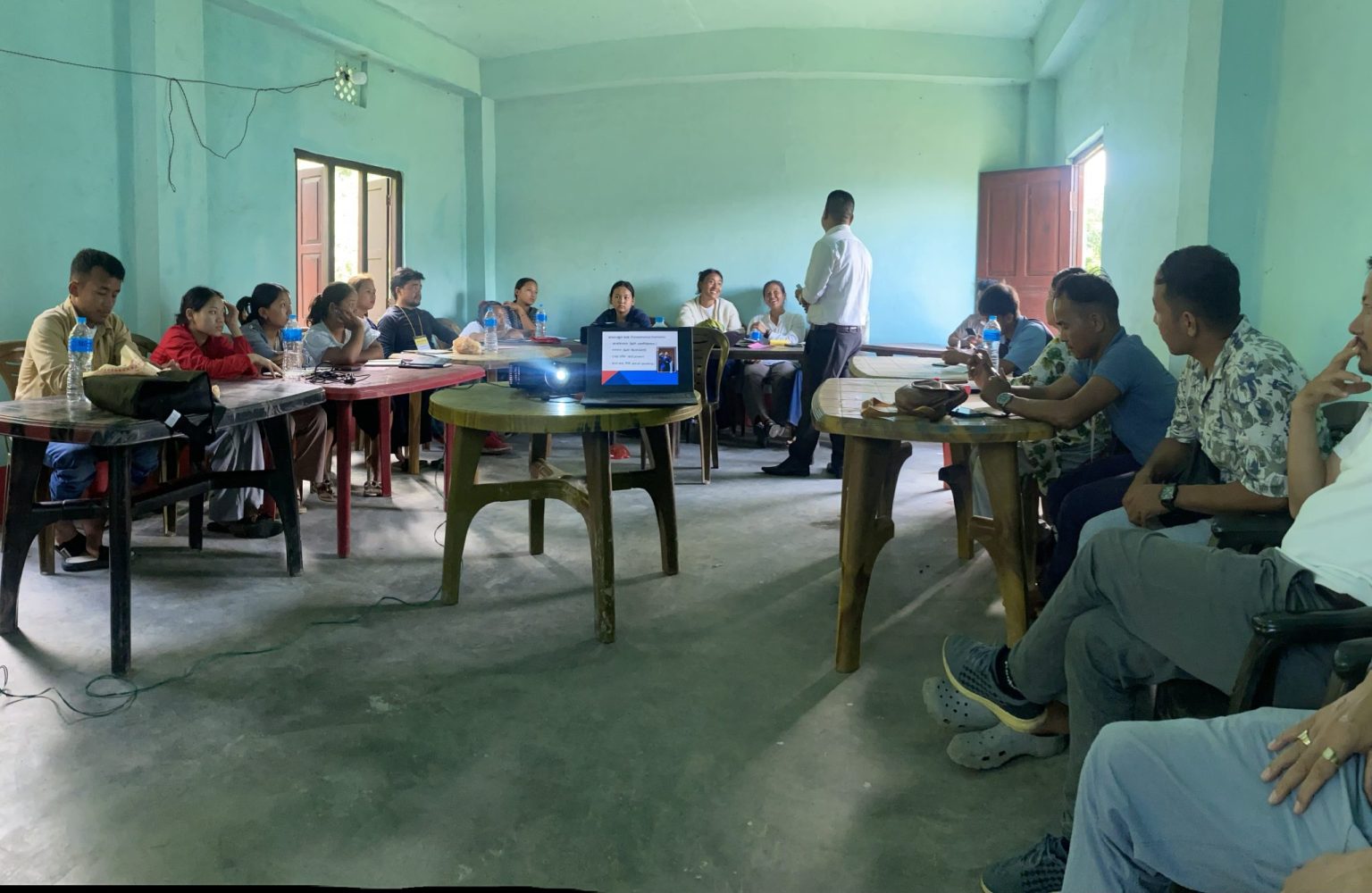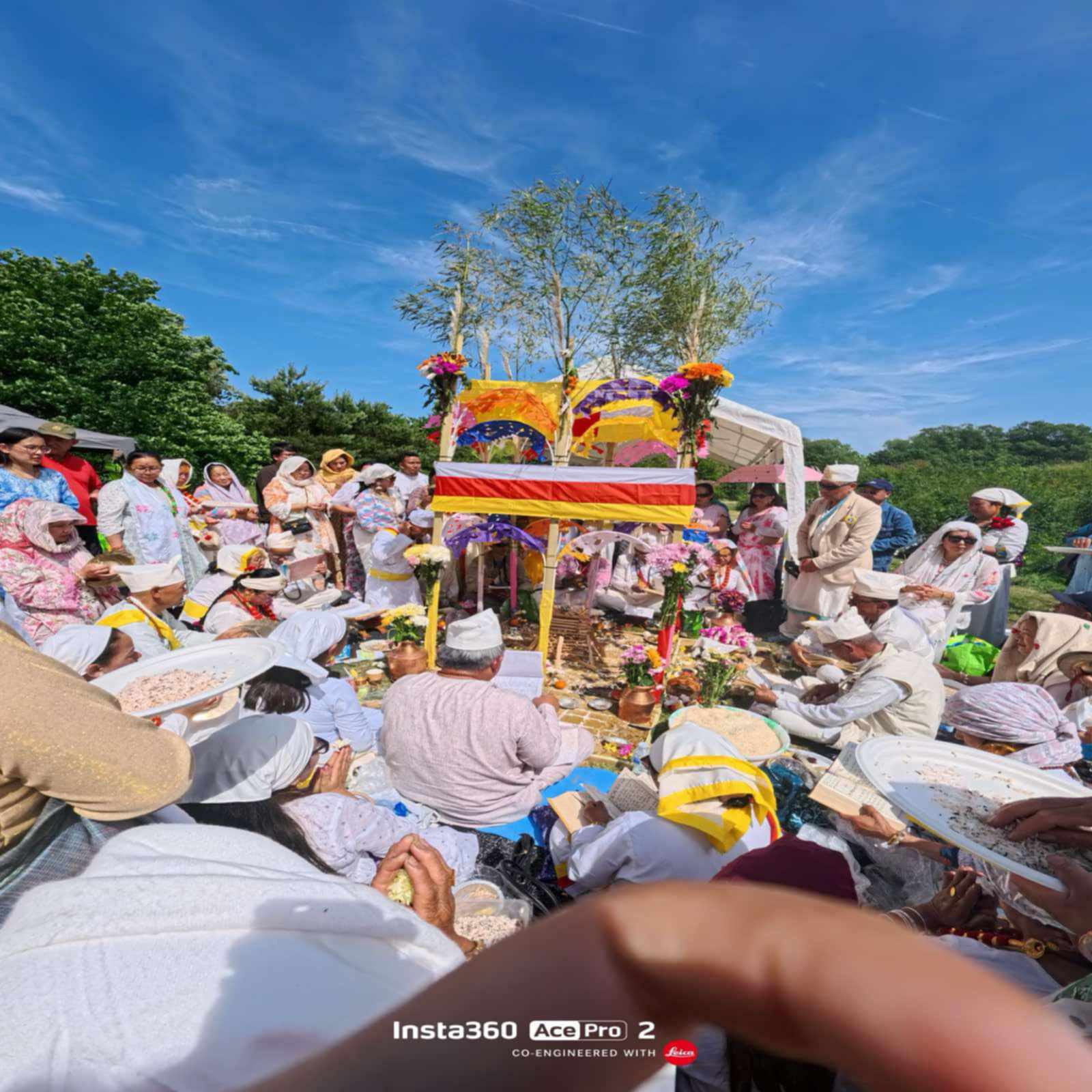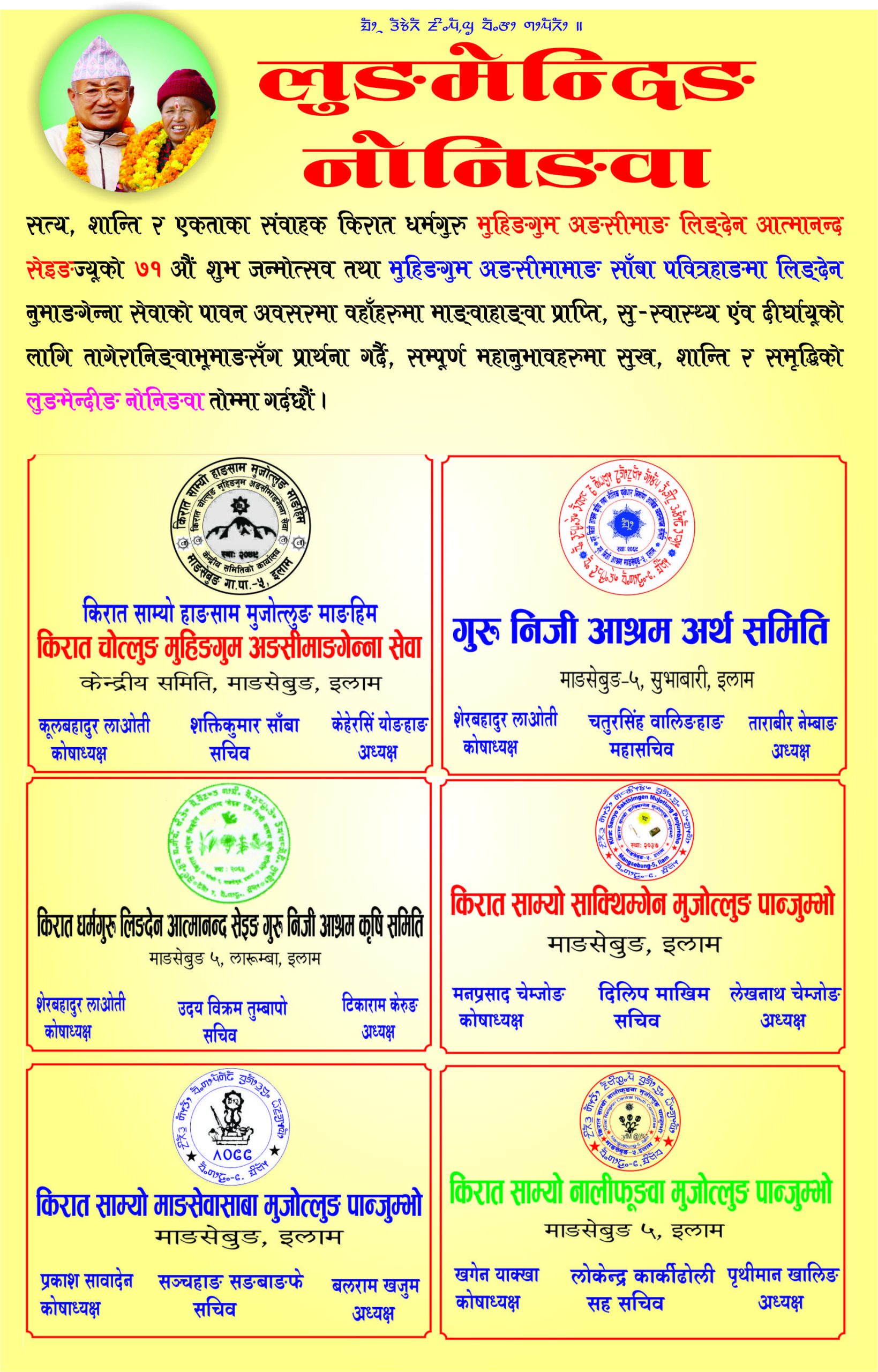
Angbuhang Abodh Abiral
Brief Biography
National luminary Mahaguru Falgunand Lingden was born to father Anshuwant Lingden and mother Hansmati Begha on 8 November 1885 ADatChukchinamba, (priviousIbhang Village Development Committee), now Mangsebung Rural Municipality, of Ilam district. He was born into an ordinary peasant family.
Mahaguru Falgunand spent his childhood in poverty and deprivation.In 1907, he joined the British Gorkhali platoon. He served 12 years in the Indian Army. And, in the latter part of his life, he dedicated himself for spiritual development, human service, social reform and education in society.
Mahaguru Falgunand, who made Panthar’sSilauti and Labre his working field, died in Panthar Imbung on April 4, 1949.On the 1st of December 2009, he was commemorated with the title of National Hero by the Government of Nepal.Falgunandian philosophies can be elaborated as below.
Peace
Peace and non-violence are the main life philosophies of MahaguruFalgunand. The opposite of war is peace. ‘Peace is the state of being able to live happily in an environment free from fear and terror’. In 1907, he joined the British Gorkhali platoon and fought the First World War (1914-1918). The war took the life of 9 million soldiers and 7 million civilians.

When he was in the platoon, Mahaguru Falgunand was known as ‘DhyaniHawaldar’. One day during the war, he said to his soldiers, ‘Look! The so-called enemies are just like us. But, we have eaten the government’s salt and water; the salt should be paid back;shoot at the sky or on the ground. If you live for truth and religion, you will not die.’Mahaguru Falgunand was in favour of a peaceful solution to the war. MahaguruFalgunand wanted peace not the violence. MahaguruFalgunanda was worried about violence, genocide, bloodshed, destruction, rape, bereavement and destruction caused by the war.
After returning from the platoon in 1919, he advocated for peace and non-violence. Mahaguru Falgunand’s teaching was ‘LayoNingwareAmeklo’or criminal thinking destroys. The violent mode of conflict is war. The seed of war arises from the human mind. His understanding was that war would be ended by settling conflicts that arise in the human mind. The petty greed for power, wealth, natural resources, and the pursuit of beauty creates conflicts among individuals and the nations. Exploitation, oppression and discrimination are causing conflict and war in the society. When such conflicts take a monstrous form, war breaks out.
Falganandtravelled to different parts of Nepal, India, Bhutan and Burma and spread the message of world peace and non-violence. He explored the causes of conflict, killing, fighting in the society. He found excessive alcohol consumption; illiteracy and unequal distribution of power by the state are causes of conflict in the society. Then, he decided to eliminate war and conflict by promoting peace in the society.
Equality
MahaguruFalgunand raised the issue of humanity and equality through Satya dharma Muchulka.Muchulka envisions an end to gender, ethnic and linguistic discrimination in society. The first point of Satya dharma Muchulka mentions that ‘sot-rittaking should stop in daughter’s marriage’. Most of the world’s human communities are male dominated. The male-dominated structure discriminates against women by establishing them as the second-class citizens. Laws, cultures and traditions are developed to keep women weak and of second class.
Feminist author Simone de Beauvoir, in her book,The Second Sex, claims the marriage is to legitimize the enslavement of women.’ After the marriage of the daughter, ‘husband’s last name, religion, class … half of the man’ is made. The son is considered to be the owner of the land, caste, surname and heir. However, Muchulka has defined to take gold, silver, cash, liquor and meat in the name of Sot-rit as a sinful act. He emphasized on the need of education and equal rights for both sons and daughters.
He was of the view that linguistic/cultural discrimination and exploitation is an act against humanity. During his time, the state did not treat the religious and cultural values of all castes equally. All the languages spoken in the country were not given equal status and treatment by the state. Not all citizens had the right to education. The religion of the ruler was the national religion and the language he spoke was the national language. He was of the view that the state should treat all religions, castes and languages of the country equally.
The Satya dharma Muchulka mentions the opening of a school for educating in the mother tongue. MahaguruFalgunand was of the opinion that all human beings should be seen, recognized and treated equally as human beings. He emphasized that the society should be brought up from the position where people have to bow down on the basis of religion, caste, gender and class. He said that only if there is an environment in the society where all people can walk with their heads upright, everyone’s head will be upright. For that, he announced that all forms of discrimination in the society should end.
Non-violence
MahaguruFalgunand emphasized on non-violence. Violence is the act of killing or hurting others. There are many forms of violence. Damage caused to humans, animals, and nature is also interpreted as violence. Violence can be physical, mental, social, religious, political, etc. Discrimination against women on the basis of gender is also a form of violence.
In a male-dominated society, different cultures, laws, traditions and images are constructed to weaken women. In society, human as well as animal violence is committed. Ironically people sacrifice animals, wishing for their well-being. On the initiative of Mahaguru Falgunand, on 6 May 1931, there held a huge meeting in LabrePanthar.The meeting passed a 7 point manifesto called Satya Dharma Muchulka. The second point of the seven-point Satya dharma Muchulka,states that worship of gods and goddesses shall not involve ‘sacrifice’.
People have been constructing human-centered discourses for thousands of years. Human is considered as the most intelligent creature on the planet. Hence, human tries to consider other creatures as inferior, animal, soulless and without conscience. The religion, the philosophy and even the science have also created a ‘hierarchy’ between man and beast. The belief that animals can be killed, eaten, and sacrificed because they are inferior has been prevalent for more than thousands of years. If human wishes get fulfilled, they sacrifice animals.

Mahaguru has broken the hierarchy created by the society by describing animal sacrifice as animal violence. According to him, humans and animals are all offspring of demand. He argued that Mang would be unhappy if we killed and sacrificed his own children.Social, cultural discrimination and exploitation are also considered as violence.
In order to make women second class in the society, men have created different religious/cultural customs, status and laws. Male-dominated societies have discriminated and exploited women for thousands of years through religious beliefs and cultural norms. In order to put an end to such violence in the society, it has been mentioned in the SatyadharmaMuchulka that the daughter-in-law will not follow the tradition.
Conclusion
Mahaguru did not write a separate book on philosophy. He used to display philosophy in practice, not in discourses and books. From many descriptions given by his disciples about his experiences and thoughts, we can conclude that Mahaguru was a great philosopher. We can conclude that his life philosophy is useful not just for any particular race or sect of a country but for the whole human community spread across the globe.














